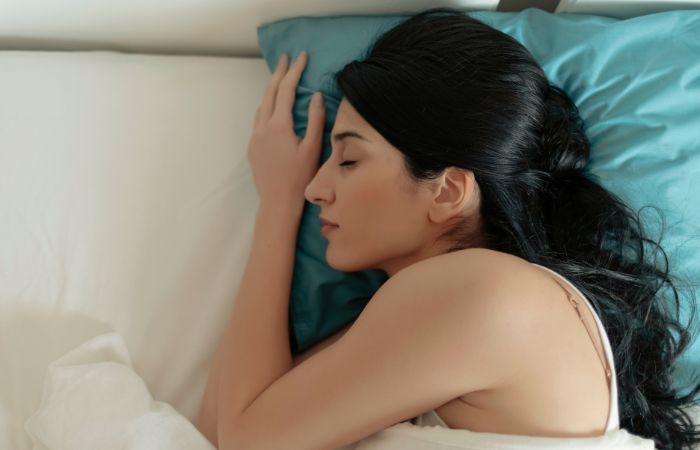Researchers agree that adequate sleep offers many benefits, including better grades, improved memory, and a robust immune system. Sleep hygiene means observing practices, habits, and environmental factors that support quality and restorative sleep. Research shows that students cannot operate optimally if they are sleep-deprived. Here are some crucial sleep hygiene tips for college.
Table of Contents
Create and Follow a Nightly Routine
Evidence shows that students who are sleep deprived perform worse on tests and creative tasks. Sleep deprivation impedes focus, increasing your risk of mistakes. It also assists your brain in distinguishing day from night and clears your mind of the daytime stresses. You become more relaxed and ready for slumber as you get closer to bedtime.
Understand that human beings tend to thrive when they follow predictable habits. A nighttime routine assists you get prepared for bed, informing your brain of the activity to follow. Doing the same activities in a particular order each night makes your brain associate those things with sleep.
Most importantly, a routine facilitates the reduction of late-night anxiety and stress. Instead of staying up late working on homework, order custom write my essays support from professionals online.
Avoid Doing Other Activities in Your Bed
Most students struggle with sleep problems because they use their beds for activities not related to sleep. Studying on your bed or watching television when seated in your sleeping space sends mixed signals to your brain.
You ought to preserve your bed for only resting and sleep-related activities for optimal sleep. This makes it easier to fall asleep at night. Also, working from your bed diminishes the quality of your sleep, thereby decreasing your productivity and energy levels during the day. If you need help with assignments, engage a custom essay company like writemyessays.org.
Avoid Caffeine Before Bedtime
Most people like to enjoy a cup of coffee or tea after dinner. However, consuming caffeine close to naptime can lead to sleep problems. So, if you are struggling with insomnia or have problems falling asleep, consider regulating your coffee intake.
The desire to fall asleep builds slowly during the day due to adenosine buildup. This chemical is the spin-off of metabolism and builds up the longer someone stays awake. However, consuming caffeine blocks the production of adenosine, decreasing drowsiness and making it difficult to fall asleep.
Avoid taking coffee two to four hours before slumber time. Those who are highly sensitive to caffeine should consider avoiding it entirely. Remember, the effect of caffeine varies between individuals.
Turn Off Screens and Devices
One of the most important things for proper slumber hygiene is switching off screens long before retiring to bed. According to research, the blue light emanating from digital screens can influence the superiority of your slumber.
When going through phones before naptime, you may encounter upsetting or exciting content, keeping you awake longer. Switch off your electronic gadgets for at least one hour before going to bed.
Remember, slumber time ought to be pleasant and relaxing. When you engage with social media too close to your naptime, you can stumble on content that negatively affects those feelings.
According to experts, anxiety and stress are the most common reasons for sleep disturbances. Don’t hesitate to ask for custom write my essay support for those complicated projects.
Exercise Regularly
Physical activity supports quality sleep in several ways. First, being active helps you get more tired during the day, making it easy to fall asleep during bedtime. Also, evidence shows that persons who exercise tend to be healthier physically and mentally, which boosts the quality of their sleep.
However, the timing of the exercise routine is crucial for optimal sleep. Tiring exercise too close to the time for bed can excite you and make it even tougher to fall asleep. According to experts, the best time to exercise for optimal sleep is the afternoon.
The benefits of exercise go well beyond improving sleep. According to studies, physical activity supports proper dietary behavior in weight management. It also lowers the risk of certain diseases, including diabetes, obesity, and cardiovascular disease.
Avoid Naps Late in the Evening
Students who are sleep deprived or those looking for ways to relax often turn to naps during the day. Napping reduces fatigue, helps with relaxation, improves alertness, and is suitable for academic performance. However, recent studies show that napping close to your slumber time of the day can negatively affect the quality of your nighttime sleep.
One of the most significant problems associated with daytime napping is sleep inertia. This is the muzzy and unsettled feeling some people experience after waking up from a nap. Taking short naps late in the afternoon can affect the quality of nighttime sleep for some people.
While the importance of quality sleep cannot be doubted, most college students don’t prioritize slumber. Many people sacrifice sleep to work on assignments or socialize with friends. They make the wrong assumption that they can work well with minimal sleep. The tips highlighted in this article can help you improve your sleep hygiene.


